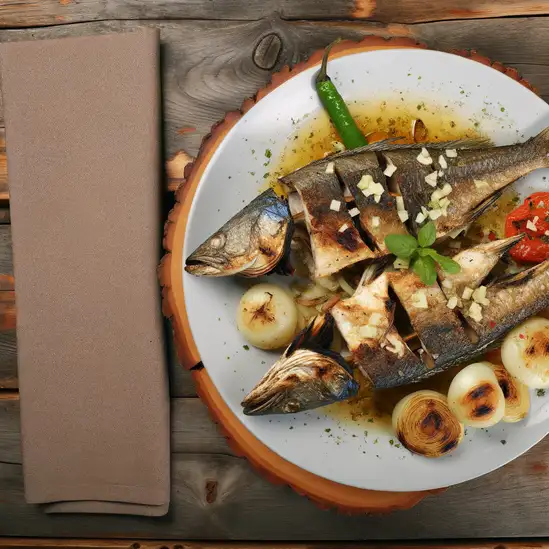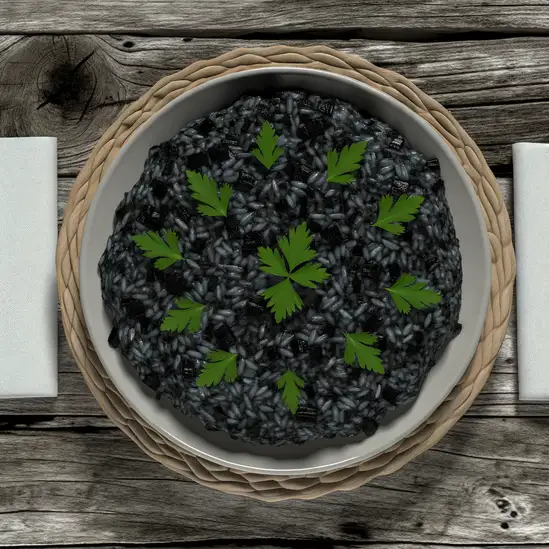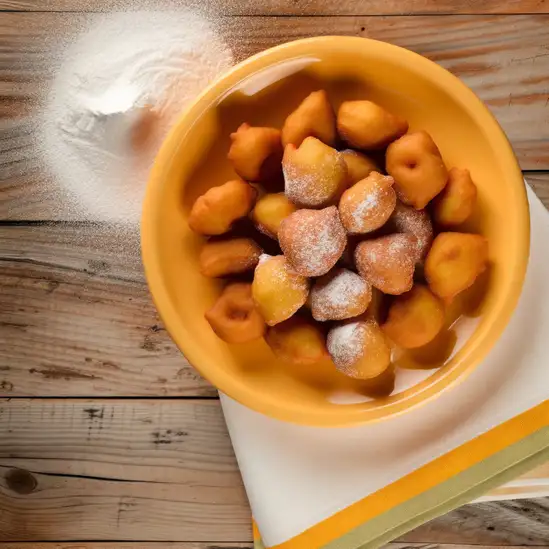



If you ever find yourself craving a place where the Adriatic breeze carries the scent of pine and salt,Biograd na Moru is where you want to be. This charming coastal town has a laid-back rhythm that instantly makes you slow down and soak in the moment. Picture wandering along the waterfront promenade as fishing boats bob gently in the harbor,their wooden hulls creaking softly,while locals chat animatedly over coffee at sun-dappled cafes. The air is filled with the mingling aromas of fresh seafood grilling nearby and the faint hint of lavender from the surrounding hills. What really sets Biograd apart is its blend of old-world charm and vibrant seaside life. The town’s narrow streets are lined with terracotta-roofed houses,and you can’t help but notice the friendly smiles of people who clearly take pride in their heritage. There’s a genuine warmth here,whether you’re sharing a glass of crisp Croatian white wine at a family-run konoba or exploring the lively market where fresh olives,figs,and homemade cheeses tempt your taste buds. Beyond the town,the crystal-clear waters invite you to dive in or sail off to nearby islands,while the nearby nature parks offer peaceful trails shaded by ancient pines. Biograd na Moru feels like a place where time stretches just enough for you to breathe,taste,and truly live the coastal Croatian way. Trust me,it’s the kind of spot that stays with you long after you’ve left.
The information on this page is currently being reviewed by Tripkliq and should be used as a guide only
Eng word: Hello
Eng pronunciation: Bohk
Local language: Bok
Eng word: Goodbye
Eng pronunciation: Doh-vee-jen-ya
Local language: Doviđenja
Eng word: Thank you
Eng pronunciation: Hvah-lah
Local language: Hvala
Eng word: How much
Eng pronunciation: Koh-lee-koh
Local language: Koliko
Eng word: Toilet
Eng pronunciation: Toh-ah-let
Local language: Toalet
Eng word: Help me
Eng pronunciation: Poh-moh-zee mee
Local language: Pomozi mi
Eng word: Yes
Eng pronunciation: Dah
Local language: Da
Eng word: No
Eng pronunciation: Neh
Local language: Ne
Eng word: Excuse me
Eng pronunciation: Oh-proh-stee-teh
Local language: Oprostite
Biograd na Moru has its roots in ancient times, originally established as a Roman settlement. Its strategic location along the Adriatic coast made it an important hub for trade and maritime activities.
Biograd na Moru holds a special place in Croatian history as the site where Croatian kings were crowned during the medieval period, symbolizing its importance as a political and cultural center.
The name 'Biograd' translates to 'White City' in Croatian, reflecting the city's bright and picturesque appearance, which has been admired for centuries.
During the Middle Ages, Biograd na Moru thrived as a bustling trade center, connecting the Dalmatian coast with other parts of the Adriatic and Mediterranean regions.
In 1125, Biograd na Moru was destroyed by Venetian forces, but the resilient spirit of its people led to the city's reconstruction and continued growth in the following centuries.
St. Anastasia's Church, built in the 18th century, is one of the city's most iconic landmarks, showcasing beautiful Baroque architecture and serving as a testament to Biograd's rich religious heritage.
During the Croatian War of Independence in the 1990s, Biograd na Moru played a significant role as a safe haven for refugees and a center for humanitarian efforts, highlighting the city's resilience and compassion.
The Biograd Heritage Museum houses a fascinating collection of artifacts, including items recovered from a sunken Venetian ship, offering visitors a glimpse into the city's maritime history.
Biograd na Moru serves as a gateway to the stunning Kornati National Park, an archipelago of 89 islands, which has been a source of inspiration and admiration for centuries.
In Grad Biograd na Moru, the most common Power Adaptor is Type C, Type F.



A method of cooking meat and vegetables under a bell-like lid, often featuring lamb or octopus, slow-cooked with herbs and olive oil.

Grilled fish, typically fresh catch from the Adriatic Sea, seasoned with olive oil, garlic, and herbs.

A savory pie filled with Swiss chard and onions, encased in thin dough, and baked until crispy.

Black risotto made with cuttlefish or squid ink, giving it a distinctive color and rich flavor.

Small, sweet doughnuts flavored with citrus and often dusted with powdered sugar, popular during festive seasons.

A traditional Dalmatian beef stew, marinated in vinegar and spices, slow-cooked with prunes and served with gnocchi.

A fish stew made with various types of fish, tomatoes, and spices, typically served with polenta.
If you ever find yourself wandering through Split,it’s like stepping into a living,breathing storybook where ancient history and vibrant modern life dance together effortlessly. The moment you stroll along the Riva promenade,the salty breeze from the Adriatic mingles with the aroma of fresh espresso and grilled seafood wafting from nearby cafés. Locals chat animatedly in the sun-dappled squares,their laughter blending with the distant hum of boats bobbing gently in the harbor. There’s a laid-back energy here that feels both timeless and alive,inviting you to slow down and soak it all in.
Split’s heart beats strongest in Diocletian’s Palace,a sprawling Roman fortress that’s less a museum and more a neighborhood where people live,shop,and gather. Walking through its ancient stone alleys,you’ll catch glimpses of colorful markets,artisan shops,and cozy taverns tucked into centuries-old walls. At night,the city transforms as lanterns flicker on,and the sound of live klapa singing—traditional a cappella harmonies—drifts through the air,wrapping you in a warm,soulful embrace.
What really makes Split unforgettable is how effortlessly it blends the old with the new. You can savor a plate of fresh octopus salad while watching fishermen haul in their catch,then wander to a rooftop bar for a cocktail as the sun sets behind the islands. It’s a place where every corner tells a story,every meal feels like a celebration,and every moment invites you to become part of its ongoing tale.
If you ever find yourself wandering through the sun-drenched streets of Dubrovnik,you’ll immediately feel like you’ve stepped into a living storybook. The city’s ancient stone walls rise proudly against the sparkling Adriatic,and as you stroll along the marble-paved Stradun,the salty sea breeze mingles with the scent of fresh pine and blooming bougainvillea. There’s a rhythm here—a gentle hum of life where history and modern charm dance together effortlessly.
Dubrovnik’s character is woven into every corner:the clatter of café cups,the murmur of locals chatting in cozy taverns,and the distant call of seagulls overhead. You can almost taste the city in the air—briny and fresh,with hints of grilled seafood and ripe figs from the markets. Sitting at a seaside restaurant,watching the sun dip behind the fortress walls,you’ll savor dishes bursting with Mediterranean flavors,paired with a glass of crisp Croatian white wine.
What makes Dubrovnik truly special is how it balances its rich past with a vibrant present. The city’s narrow alleys invite exploration,revealing tucked-away galleries,artisan shops,and lively squares where music spills out into the streets. Whether you’re tracing the footsteps of ancient mariners or simply soaking up the golden light on a quiet terrace,Dubrovnik feels like a warm embrace—inviting,timeless,and utterly unforgettable.
If you ever find yourself wandering the Dalmatian coast,Zadar is one of those places that sneaks up on you with its quiet charm and unexpected magic. The moment you step onto its ancient stone streets,there’s this warm,timeless feeling—like the city is gently humming a tune just for you. The salty breeze from the Adriatic mingles with the scent of fresh pine and blooming jasmine,wrapping around you as you stroll along the waterfront. It’s a place where history isn’t just in museums; it’s alive in the crumbling Roman ruins,the medieval churches,and the lively squares where locals gather to chat and sip coffee.
What really sets Zadar apart is its playful spirit. You’ll hear it in the waves as they dance through the Sea Organ,an extraordinary installation that turns the sea’s movement into haunting melodies. And just a few steps away,the Sun Salutation lights up the night with a mesmerizing display of colors,making the waterfront feel like a celebration of nature and art. Grab a seat on the stone benches,watch the sun dip below the horizon,and you’ll understand why Alfred Hitchcock once called Zadar the most beautiful sunset in the world.
The city’s vibe is relaxed but vibrant,with cozy konobas serving up fresh seafood and local wines that taste like the essence of the region. Whether you’re wandering through the bustling market,exploring narrow alleys,or simply soaking in the views from a café terrace,Zadar invites you to slow down,breathe deeply,and savor every moment.
If you wander into Šibenik,you’ll immediately feel like you’ve stepped into a place where history and the sea have been quietly chatting for centuries. The city’s old stone streets,worn smooth by footsteps over hundreds of years,invite you to slow down and soak in the atmosphere. There’s a gentle hum of life here—fishermen unloading their catch,the clinking of glasses from cozy waterfront cafés,and the distant call of seagulls mingling with the soft splash of waves against the harbor walls.
What makes Šibenik truly special is its blend of rugged Adriatic charm and rich cultural layers. The sun warms the limestone walls,making them glow golden in the late afternoon,while the scent of pine trees drifts in from the nearby hills. You can’t miss the stunning Cathedral of St. James,a masterpiece carved entirely from stone,where every detail tells a story. Wander through the narrow alleys,and you’ll find vibrant markets bursting with fresh figs,olives,and local cheeses that taste like sunshine.
Evenings in Šibenik have a relaxed,almost magical feel. The city lights flicker on,reflecting in the calm waters,and the air fills with the aroma of grilled seafood and herbs. Locals gather in lively taverns,sharing laughter and stories over glasses of crisp Croatian wine. It’s a place where time slows just enough for you to savor the simple pleasures—good food,warm smiles,and the endless blue horizon.
Imagine stepping into a sun-drenched town where lavender-scented breezes mingle with the salty kiss of the Adriatic Sea—that’s Hvar for you. From the moment you wander through its ancient stone streets,there’s a relaxed yet vibrant energy that wraps around you like a warm embrace. The sunlight bounces off terracotta rooftops,and the sound of laughter spills out from cozy cafés where locals sip espresso and chat animatedly. It’s a place where history and modern life dance effortlessly together.
As you stroll along the harbor,sleek yachts bob gently beside fishing boats,and the air carries the faint aroma of grilled seafood and fresh herbs. The town’s medieval walls and the imposing fortress overlooking the bay tell stories of centuries past,while the lively markets burst with ripe figs,olives,and sun-ripened tomatoes. At sunset,the sky blazes in shades of pink and gold,and the waterfront buzzes with music drifting from open-air bars,inviting you to linger just a little longer.
What makes Hvar truly special is its blend of authenticity and joie de vivre. It’s not just a place to see but a place to feel—whether you’re savoring a glass of local Plavac Mali wine,exploring hidden coves by boat,or simply watching the world go by from a shaded terrace. Hvar’s charm lies in its ability to make you slow down,breathe deeply,and soak in the simple pleasures of life by the sea.
Imagine stepping into a place where every narrow cobblestone street whispers stories from centuries past,and the salty breeze from the Adriatic Sea mingles with the scent of fresh pine and blooming bougainvillea. That’s Trogir for you—a charming,sun-drenched town that feels like a living museum but with a lively,warm heartbeat. As you wander through its maze of medieval alleys,you’ll catch glimpses of ancient stone buildings,ornate churches,and cozy cafés spilling out onto tiny squares where locals sip espresso and chat animatedly.
The vibe here is effortlessly relaxed yet rich with history and culture. You can hear the gentle lapping of waves against the harbor,the distant call of seagulls,and the soft murmur of conversations in Croatian,Italian,and English. At sunset,the golden light bathes the old town in a magical glow,making it the perfect time to savor a plate of fresh seafood—imagine tasting the briny sweetness of grilled fish paired with a crisp local white wine while watching fishing boats bob gently in the harbor.
What makes Trogir truly special is how it balances its deep-rooted heritage with a welcoming,unpretentious spirit. It’s not just a place to see but a place to feel—where history,nature,and everyday life blend seamlessly. Whether you’re exploring the fortress walls,browsing artisan shops,or simply sitting by the water with gelato in hand,Trogir invites you to slow down and soak in its timeless charm.
Scammers may install skimming devices on ATMs to steal card information from unsuspecting tourists.
Unlicensed currency exchange offices may offer poor exchange rates or charge hidden fees.
Scammers may post fake rental properties online, asking for deposits before arrival, only for tourists to find out the property doesn't exist.
Unlicensed individuals may offer guided tours, providing little value or incorrect information while charging high fees.
Rental companies may falsely claim that tourists caused damage to jet skis or boats and demand excessive repair fees.
Some taxi drivers may overcharge tourists by not using the meter or taking unnecessarily long routes.
Scammers may pose as parking attendants, charging tourists to park in free or public parking spaces.
Crowded tourist areas may attract pickpockets who target distracted visitors.
Some restaurants may add extra items or hidden fees to the bill, assuming tourists won't notice.
Street vendors may inflate prices for souvenirs or goods when they see tourists, especially if prices are not clearly marked.
The possession, use, and distribution of illegal drugs are strictly prohibited in Croatia, including Biograd na Moru. Penalties for drug-related offenses can be severe, including fines and imprisonment. Tourists should avoid any involvement with illegal substances and be aware that even small amounts of drugs can lead to legal consequences.
In Biograd na Moru, Croatia, smoking is prohibited in enclosed public spaces, including restaurants, cafes, and public transportation. However, some establishments may have designated smoking areas. Smoking is also banned in certain outdoor areas, such as near schools, hospitals, and playgrounds. Tourists should look for 'No Smoking' signs and adhere to local regulations to avoid fines.
Vaping is subject to similar regulations as smoking in Biograd na Moru. It is generally prohibited in enclosed public spaces and may be restricted in certain outdoor areas. Tourists should be mindful of local rules and avoid vaping in areas where smoking is not allowed.
What are other people saying about Grad Biograd na Moru?
Recent Social posts about Grad Biograd na Moru
There is nothing to show you for now.